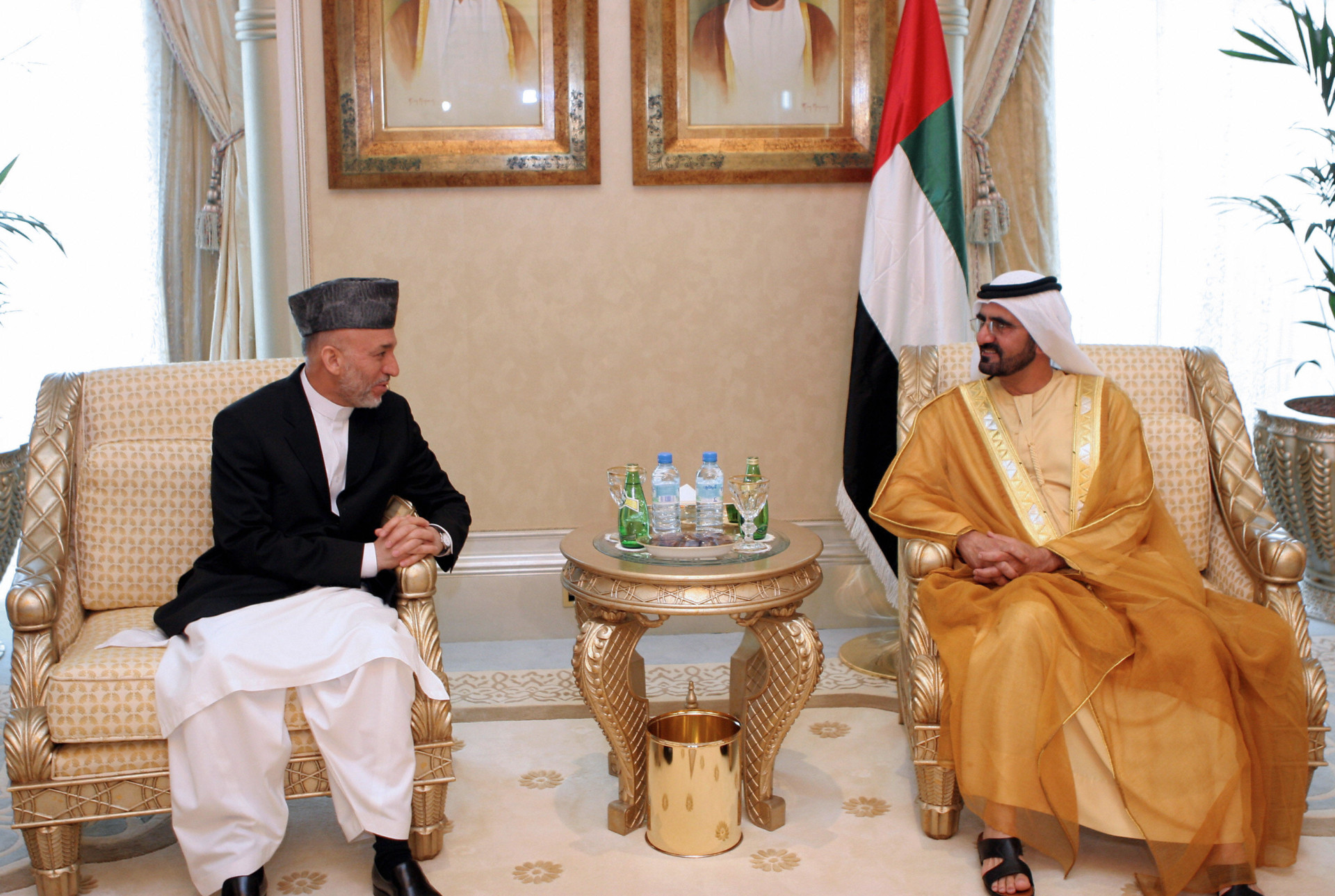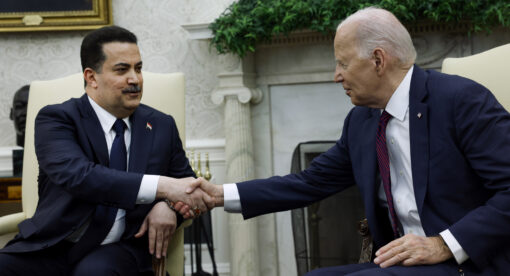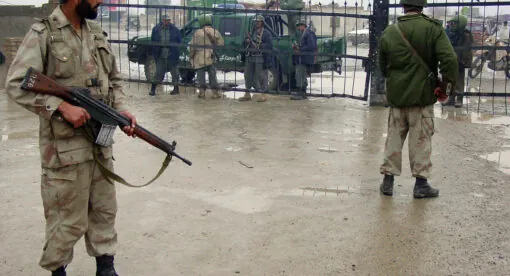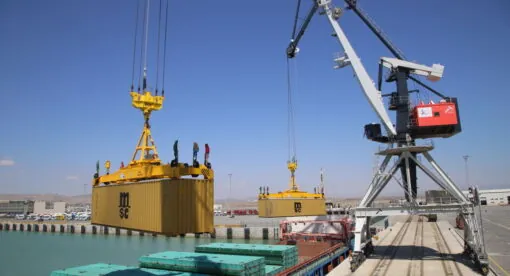There is a great deal of talk about how the United Arab Emirates (UAE) continues to expand its influence in the Middle East, South Asia and Africa but very little on how the energy-rich Gulf Arab state is also trying to establish itself as a player in Central Asia. Through strategic investments in infrastructure, energy/economics, and security, the UAE is focusing on the heart of the Eurasian landmass. Abu Dhabi’s focus on Central Asia over the past three years reflects its desire to have a stake in this critical strategic nexus between Russia and China. The UAE’s efforts also highlight Central Asia as an arena for competition between the UAE and its competitors, Turkey and Iran.
Relationships, Energy, and Investment
The UAE’s ability to communicate policy in a calculated way is based on cultural drivers. Emirati policy is tribal in nature. Central Asian states are tribal and clannish, so this environment is a natural incubator for long-term positive relations. For example, UAE leaders travel quietly to Kazakhstan to hunt in the country’s southern states — hunting grounds that replaced those in Pakistan.
For the Emirates, Central Asia’s five countries — Kazakhstan, Kyrgyzstan, Tajikistan, Turkmenistan and Uzbekistan — have held potential for investment in key sectors since their emergence from the collapse of the Soviet Union. UAE’s support for China and the Belt and Road Initiative (BRI) is another fundamental element of the Emirates’ strategy. UAE-China relations are reaching new heights; the two countries signed key strategic agreements, and Abu Dhabi Crown Prince Mohammed bin Zayed’s visit to China cemented better ties. Russia is closely watching the development of Gulf-Central Asian financial ties and is encouraging the Gulf States to invest in key countries. These goals include ways to provide supply chain output along the emerging BRI and current regional transportation and infrastructure corridors. The Emirates, especially, see this as an opportunity to gain a foothold in Central Asia and achieve key geopolitical and geoeconomic goals.
The UAE is investing heavily in Central Asian energy projects that benefit Russia. For instance, 10 years ago Emirati investment firm Mubadala signed an agreement with KazMunaiGas for a 24.5 percent stake in an offshore field in the Caspian Sea. More important, the UAE is making investments to promote its vision of accessing ports as part of a global hub-and-spoke system, such as Dubai-based DP World’s acquisition of two special economic zones in Kazakhstan on the Caspian Sea. DP World bought a 51 percent stake in the Khorgos special economic zone and a 49 percent shareholding in the Aktau zone that gives DP World management and governance rights. Dubai’s establishment of the Astana International Financial Center, which could turn Astana into a major financial hub for Central Asia and the BRI, is also part of the UAE-Kazakh equation.
Countering Turkey and Iran
Beyond strengthening projects and relationships that benefit Russia and China, the UAE’s involvement in Central Asia serves to strengthen the Emiratis’ position against their rivals, the Turks and Iranians.
In Tajikistan, the UAE is playing alongside Saudi Arabia, and Iran. Given Tajikistan’s Persianate ethnic identity and its cultural and historical affiliation with Iran, it is of primary strategic importance for Abu Dhabi to be on excellent terms with Dushanbe in order to counter Tehran on its rear flank. UAE’s attempts appeared to work briefly, beginning two years ago with a coordinated campaign with Saudi Arabia to bring in humanitarian aid and investment. Dushanbe had already turned its back on Iran, especially because of Tehran’s support for Tajikistan’s opposition Islamic Renaissance Party, so Dushanbe was ready to entertain Emirati interests.
But recently, the Tajiks swung back around to Tehran, and both the Saudis and Emiratis lost their strategic investments. However, Tajikistan also swung toward China and the introduction of Chinese troops in the country. This change brought the Emiratis satisfaction as far as improving security in Tajikistan but was disappointing because the move failed to encircle Iran.
The UAE’s competition with Turkey in Central Asia is important in the context of the fight over the future of the Muslim geopolitical real estate across Eurasia. The competing “Islamic visions” (evolutionary transformation through moderation and tolerance versus Muslim Brotherhood-related radical agendas) are already playing out in various theaters in the Middle East and North Africa.
Turkey’s interest in Central Asia dates back to 1991, after the fall of the Soviet Union. Ankara has been gradually increasing its involvement in Central Asia – through support programs for Turkic speakers, by establishing The Cooperation of Turkic Speaking States, through the spread of the Gulen Movement, and through multi-billion-dollar construction investment. The Turkish push collides with the Emirati interest in shaping the Islamic landscape.
Turkmenistan has a unique position in the UAE maneuvers to counter Iran and Turkey. The Central Asian country lies along Iran’s northern border, and Turkmenistan and Turkey share Turkic identity and language. The shared border between Turkmenistan and Afghanistan is also on Abu Dhabi’s radar because of the ungovernable territory found in this violence-prone space. Last year, the Emiratis enhanced their investments in Turkmenistan, focusing on infrastructure, gas production and the military. (It doesn’t hurt that Emirati notables also hunt in Turkmenistan, just as they do in Kazakhstan, as part of the cultural driver.) Given Turkmenistan’s strategic importance in the future of energy markets, the UAE recognizes the necessity to help Turkmenistan through its current troubled times by supporting continuity in Ashgabat.
Implications
The UAE is methodically entering the Central Asian geoeconomic mix to boost Emirati interests in a new dynamic. Using Central Asia in order to press Iran on its northern flank is becoming an important geopolitical concern, as are natural gas markets. Abu Dhabi is seeking a political return on its investment in Central Asia, where key states are lining up against Iran while maintaining good ties with Russia.
Both Moscow and Beijing are benefiting from ongoing UAE policy in Central Asia. This type of cooperation has won the Emiratis a close strategic relationship in Central Asia in terms of the UAE’s ability to be a vested and thoughtful investor concerning both Russia’s and China’s security interests in Central Asia. The Emiratis are obviously highly cognizant of the problem of radical Islam, as well as the need to build up sustainable and long-lasting projects with financing and strategic options.
Forecast
The UAE’s approach to Central Asia will continue to focus on infrastructure projects, with an eye toward energy and finance. However, greater defense and security ties meant to help these countries “transform” will become a larger objective for the Emiratis. Abu Dhabi is beginning to create a vision of defense and security for Turkmenistan similar to that seen in its foreign policy in Yemen and the Horn of Africa.
Diversification of the Emiratis’ financial portfolio is a major objective behind UAE’s interest in Central Asia. However, Emirati interests in this strategic region go beyond mere investment; the UAE’s ties to Kazakhstan and Turkmenistan bring into focus two key states that have an interest in maritime issues in the Caspian Sea. The role of Dubai’s DP World in building not only Caspian ports but also Russia’s Arctic ports is a notable expression of the UAE’s desire to be a maritime logistics superpower.
The real strategic issue is how the Kremlin will support Central Asian states that look to the Arabian Gulf for transformation; Moscow will play a major role in those unfolding relationships, especially in cases where a major UAE acquisition could damage Russian interests.
Moscow and the UAE will continue cooperating with each other and with specific Central Asian states as the Emiratis continue making inroads into the region. Russia will continue to see the UAE’s actions as a positive for Moscow. It is highly likely that the UAE and Russia will coordinate on Turkmenistan after President Gurbanguly Berdimukhammedov’s time in office ends, in that both Abu Dhabi and Moscow will want to manage a transition.
Policy Recommendations
The United States needs to coordinate with its Gulf partners about their specific bilateral relationships in Central Asia. Washington also needs to keep an eye on the Emiratis as they get closer to Russia and China philosophically on how the Central Asian states are contending with Islamic issues. Washington must monitor how economic ties are being used in order to determine the strategic implications under the concept of “enabler.” If the UAE is enabling Russia and China to increase harsh domestic measures, then the U.S. needs to send a sharper message to Abu Dhabi. Given that the UAE is not under U.S. intelligence surveillance, a sharper eye is required for mitigating anti-U.S. Emirati behavior. The United States should look for ways to cooperate with the Emirates on where best to target investments in a joint manner that promotes transparency in Central Asia.
Dr. Theodore Karasik is Senior Advisor to Gulf State Analytics, Fellow, Russia & Middle East Affairs at the Jamestown Foundation, and an Adjunct Senior Fellow at the Lexington Institute. For the past 30 years, Karasik has worked for a number of U.S. agencies researching and analyzing religious and political issues across MENA and Eurasia. Dr. Karasik lived in Dubai, UAE, from 2006 until 2016, where he worked on Arabian Peninsula foreign policy and security issues. He Tweets at @TKarasik.
The views expressed in this article are those of the author and not an official policy or position of the Newlines Institute.







